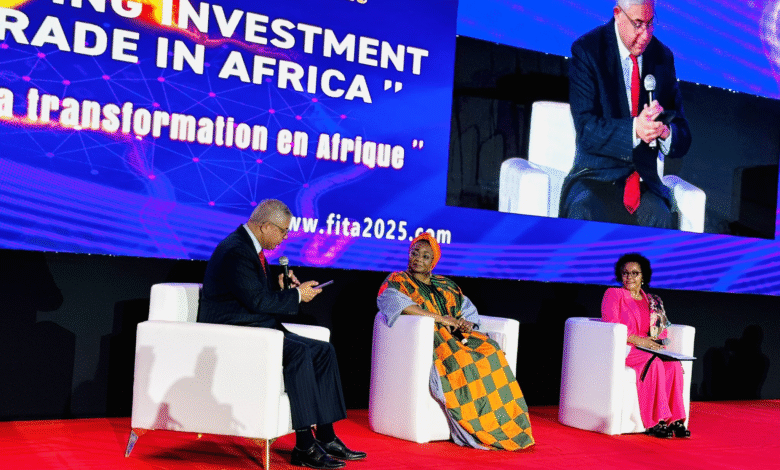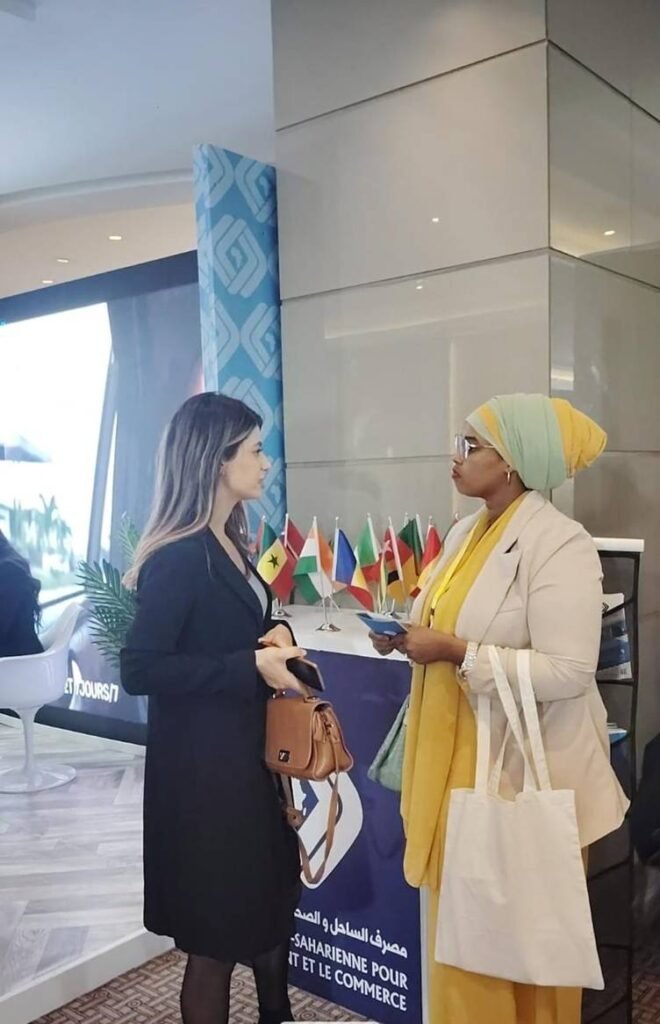FITA 2025 : Tunisia strengthens its African footprint
Tunis hosted the 8th edition of the international conference “Financing Investment & Trade in Africa” (FITA) on May 6 and 7, 2025. This event aims to promote South-South cooperation. As Africa seeks to drive its economic transformation, Tunisia intends to play a leading role by focusing on investment, trade, and innovation.

By Bykkiss Mentari, in Tunis
Tunis was transformed for two days into Africa’s economic capital. More than 2,000 participants from 60 countries, the majority of them economic and political actors from the continent, answered the call of the Tunisia Africa Business Council (TABC) for the 8th edition of FITA, held under the powerful theme: “Driving Africa’s Transformation.”
This edition, marking TABC’s 10th anniversary, revolved around four major pillars: industrial transformation, energy transition, digitalization, and the modernization of infrastructure and logistics. “Africa’s time has come,” declared Anis Jaziri, President of TABC, during the opening ceremony. He advocates for the continent to become a “balancing power” in the global business and development arena.
Tunisia’s quest for African partnerships
FITA 2025 embodies Tunisia’s ambition to strengthen its African foothold. Tunisian exports to sub-Saharan Africa have tripled in less than ten years, reaching 1.6 billion dinars in 2024 (USD 514 million). “This year, our focus is on how we, as Tunisians, can support Africa’s industrialization,” emphasized Jaziri.
The potential is real. Beyond the rapidly growing healthcare sector, medical tourism appears as a strategic focus. The ministerial panel titled “Capitalizing on Africa’s Tourism Potential to Stimulate the Economy” highlighted Tunisia’s strengths in this field.
FITA, a platform for business and innovation

The conference also stood out for the diversity of its formats: 14 high-level panels, 10 parallel events, 7 specialized workshops, more than 3,000 B2B and B2G meetings, and the introduction of the FITA Pitch Days. These sessions allowed innovative project leaders to meet African and international investors. The initiative was praised by Laurent Kazadi, a young Congolese entrepreneur who received an award at this edition: “This international conference is a powerful platform that is gaining traction and will continue to grow.”
The Tunisian company Comète, active in the semi-trailer industry for over 50 years, received the FITA award for “Company of the Year.” Its CEO, Sami Driss, applauded the event: “FITA is an opportunity to discover new prospects through the participants coming from various African countries.”
Africa, a promising market for Tunisia

Among the targeted markets are the DRC, Nigeria, Côte d’Ivoire, Madagascar, and Guinea. The Nigerian Minister of Foreign Affairs, present in Tunis, reminded the audience of his country’s importance, as the largest African market with its 230 million inhabitants, for Tunisian exports. “Nigeria represents a major opportunity, particularly for olive oil,” noted Jaziri.
With its human capital, entrepreneurial fabric, and strategic geographical location, Tunisia aspires to become a hub for South-South economic cooperation. It can also rely on a growing network of companies established in Africa, notably in Côte d’Ivoire.
Economic resilience as a source of promise
A breath of fresh air for the Tunisian economy, which, despite persistent political instability, shows signs of resilience. According to the latest forecasts from the International Monetary Fund (IMF), real GDP growth is expected to reach 1.4% in 2025, the same rate as in 2024. Inflation is expected to decline, from 7% in 2024 to 6.1% in 2025.
Although these figures remain modest compared to the regional average of 2.6% for Middle East and North Africa (MENA) countries, Tunisia retains significant potential as a gateway to the African continent. Its strategic geographical location, trade agreements with the European Union, and participation in the African Continental Free Trade Area (AfCFTA) make it a potential hub for regional investment. Structural reforms—particularly in the governance of public enterprises and improving the business climate—could boost growth and enhance economic stability.
In the meantime, as Africa is poised to become one of the world’s major growth centers—with a population expected to reach 2.5 billion by 2050 and rapid urbanization—Tunisia can play a strategic role as a bridge between Europe and sub-Saharan Africa. More and more Tunisian entrepreneurs understand this and are looking to expand their reach beyond the Maghreb, betting on African economic integration and initiatives like AfCFTA to accelerate their development.






